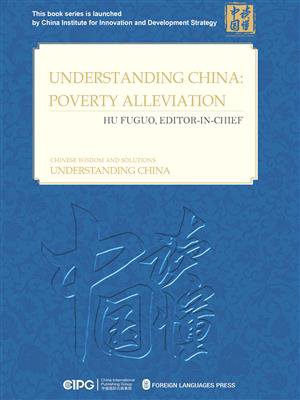Chapter 3
China's Thoughts on Poverty Alleviation
Introduction: China has a long history of poverty alleviation, with profound thoughts on poverty reduction. Since the 1920s, Chinese Communists have combined China's revolution, construction and reform under the guidance of Marxism, and the theories and thoughts of poverty alleviation themed on "common prosperity" have been gradually developed. Since the 18 th CPC National Congress, in order to let all the people in China join a moderately prosperous society, the Party has entered a new stage of poverty alleviation and comprehensive elimination of extreme poverty, moving on to all-out efforts to fight against poverty based on President Xi Jinping's thoughts on poverty alleviation. This chapter chronicles Xi Jinping's thinking on poverty reduction, and introduces its theoretical origins, development and profound contents – a collective manifestation of China's wisdom in poverty alleviation and the key to understanding the country's fight against poverty.
The history of helping the poor not only demonstrates a pursuit of fairness and justice, as well as a longing for a better life, but also represents and fosters a rational thinking in the development of human society and poverty alleviation. Marxism originally paid attention to and analyzed the problem of capitalist poverty from the institutional perspective. The poverty thoughts of Marx and Engels have their origins in The Condition of the Working Class in England published in 1842 and The Economic and Philosophic Manuscripts of 1844 , two books revealing the cruel exploitation of the proletariat by the bourgeoisie. Meanwhile, Marx distinguished and defined absolute poverty and relative poverty, pointing out that laborers' poverty stems from the separation of capital, land rent and laborers, and that the separation of people and things in the production process leads to poverty and a scarcity of production resources, further resulting in laborers' material poverty, spiritual poverty, and cultural poverty.
Marx's Capital offers an analysis and theoretical critique of the production mode under capitalism, pointing out that abolition of bourgeois ownership is a way of achieving communism, eradicating poverty, and putting an end to exploitation. The thoughts on poverty and poverty reduction of Marx and Engels not only offer our country the materialistic stance on the analysis of poverty, but also point out the fundamental path and direction of poverty eradication. Based on the profound critique of capitalism, Marx and Engels expounded the phenomena of material poverty, spiritual poverty, absolute poverty, and relative poverty, while proposing ideas for eliminating poverty afflicting the working class, pursuing people's interests, promoting the unity of free people, and comprehensive development for humanity, thus offering scientific standpoints, viewpoints and methods for the CPC to lay down strategies for poverty alleviation and promoting the cause of poverty reduction.
Under the guidance of Marxism, Chinese communists have combined China's revolution, construction and reform, gradually forming the theories and thinking of poverty alleviation themed on "common prosperity". In November 2012, the 18 th CPC National Congress was held, and Xi Jinping was elected General Secretary of the Central Committee of the CPC. Since he held office, Xi has put great emphasis on development-oriented poverty alleviation. He has personally planed, promoted and supervised the fight against poverty. In a series of domestic and international inspections and work conferences, Xi Jinping elaborated on his thoughts on targeted poverty alleviation, specifying directions, plans and requirements for all aspects of poverty alleviation, thus forming a comprehensive ideological system that keeps enriching the development-oriented poverty alleviation thoughts with Chinese characteristics, and a scientific and fundamental guidance for winning the fight against poverty in a new era.


